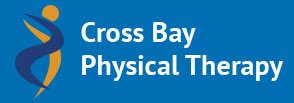The snow is starting to melt and the temperatures are starting to rise. The arrival of spring means folks are shedding winter gear and heading outside to take advantage of warmer weather. The arrival of spring also usually means more injuries for “weekend warriors.” Weekend warriors are loosely defined are sedentary folks during the week who go all out with physical activity on the weekends.
As you might imagine, it’s tough on the body to stuff a week’s worth of workouts into two days. Often there isn’t much rest between activities and once Monday rolls around, activity subsides until the next weekend. With such an exaggerated schedule, bodily issues are prevalent. Twisted ankles, an overused rotator cuff or a pulled muscle – these are all common weekend warrior injuries.
In order to prevent these types of injuries, consider the following suggestions:
Always warm-up first. Whether you’re doing an aerobic mall walk or a bike sprint, it’s important to give your body a chance to become acclimated to exercising. Aim for five to ten minutes of low intensity exercise to get your heart rate up and warm your muscles.
Get some exercise during the week. Obviously, time is much more limited during the workweek but work in some brisk walks or strength training. Avoid making your workout schedule all or nothing. Take advantage of any opportunities to move. Walk to a co-worker’s desk rather than sending an email. Park your car farther away from your office, grocery store, etc.
Focus on compound movements. Compound movements are movements that use several muscle groups at once (typically large muscle groups). If you use the stairs, try not to use the rails. Tighten your abdominals and gluteals as you sit down and again as you stand.
After exercising, always stretch. Allocate five to ten minutes to stretch your entire body. Your muscles are at their “stretchiest” post workout. Take advantage of this and work on flexibility.
If you find yourself a weekend warrior victim, the therapists at Cross Bay Physical Therapy in Howard Beach are fully qualified to assist you with rehabilitation, soft tissue mobilization, building strength, and gait retraining. Cross Bay therapists can also assist with range of motion training, cervical/lumbar traction, and any mobility aids you may need.
By Benjamin Bieber
